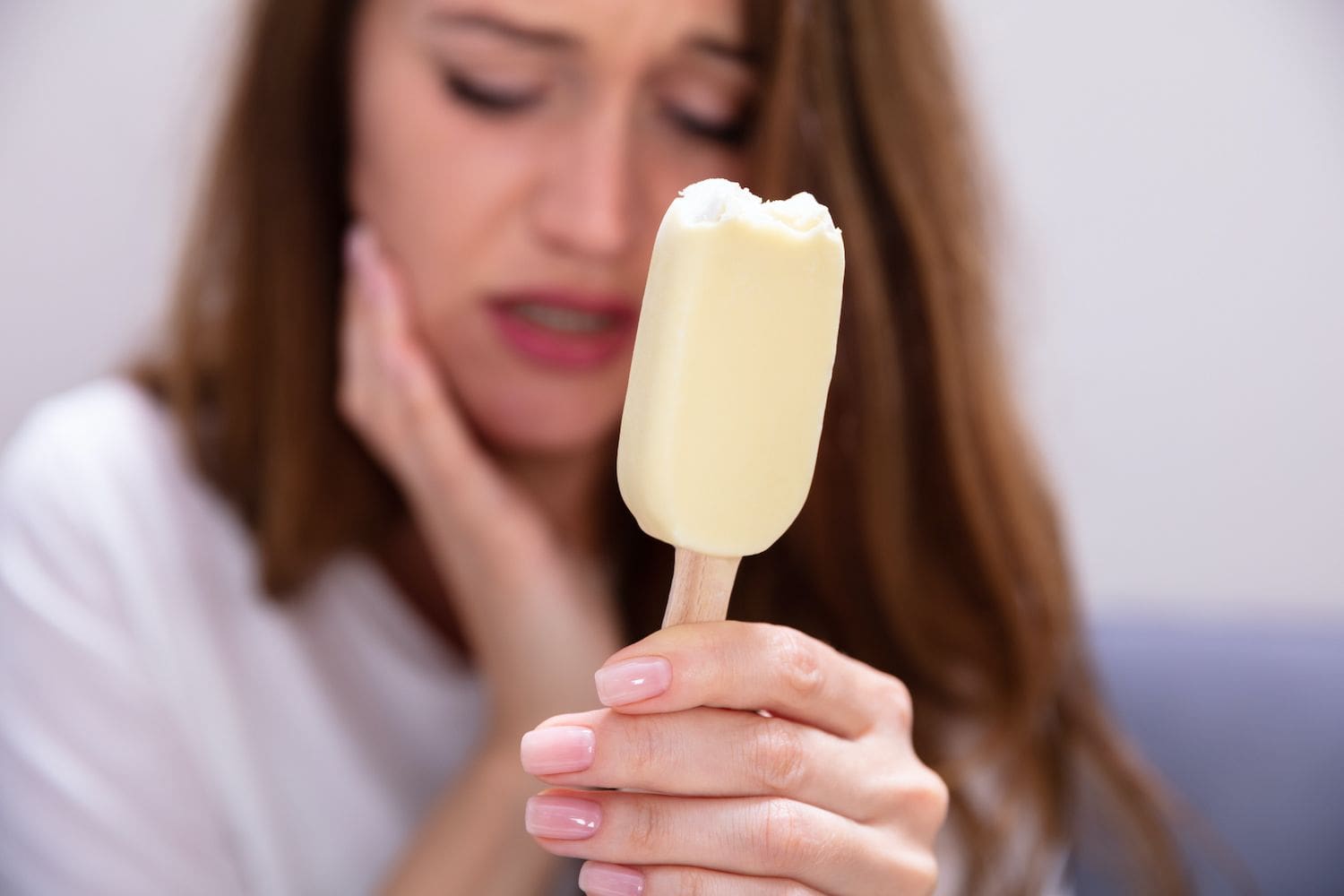Toothaches can be highly disruptive to your everyday life. If you have ever felt a sharp, intermittent pain in your tooth, you are familiar with tooth sensitivity. This type of oral pain occurs when an external item touches an exposed nerve of a tooth. It generates a jolt of pain that will go away with the removal of the stimulus.
Exposure of nerves in the tooth may occur due to damage to the enamel, the outermost layer of your tooth. This enamel erosion may develop for a number of reasons, and it often requires treatment from a dentist to repair.
While any item that touches an exposed tooth nerve may trigger sensitivity pain, certain foods and beverages may have a greater risk of exacerbating this type of tooth pain. Find four examples of food items that may worsen tooth sensitivity symptoms when you read on.

Ice Cream
Ice cream is a common aggravator that will make sensitive teeth feel worse. This is because sensitive teeth can have an intense reaction to extreme temperatures. Ice cream retains its smooth, creamy texture when frozen, and its cold temperature will shock an exposed nerve in a tooth, leaving you in pain.
Dentists recommend consuming foods and beverages at a moderate temperature if you have sensitive teeth so that you can avoid this discomfort. Because ice cream will melt when it warms, you may want to steer clear of this treat until you receive treatment for tooth sensitivity.
Coffee
Sensitive teeth are also subject to pain under hot temperatures. Many people may feel sharp pains in their teeth if they drink piping hot beverages like coffee or tea. If your mug is steaming hot, you may want to wait until it cools down a bit before drinking it in order to reduce the risk of sensitivity pain.
Coffee can often be acidic as well, especially if you add sugar to the drink to sweeten its flavor. Acidic food items may contribute to enamel erosion, so be careful when consuming these items if you want to prevent tooth sensitivity.
Hard Candy
Dentists often suggest that their patients limit the amount of candy in their diet to prevent dental problems. Patients who experience tooth sensitivity might also want to avoid these sweets to stop oral pain.
The high sugar content can make your mouth more acidic, leading to further enamel damage that will worsen tooth sensitivity. Hard candy in particular can put your teeth in danger of an injury.
You should not bite down on hard-textured items like these candies. But many people cannot avoid the temptation to do so. The action will exert high pressure on a tooth that could cause it to chip or crack. It can also hurt an exposed nerve in a tooth.
Popcorn
The act of chewing stimulates saliva production, which is beneficial for your oral health. But you may need to be careful when you eat hard or crunchy food items, especially if you already have sensitive teeth.
Snacks like popcorn may seem light or fluffy in texture, but they may hide hard kernels that could injure a tooth. Be careful when you eat hard foods so that you do not create or worsen tooth pain.
